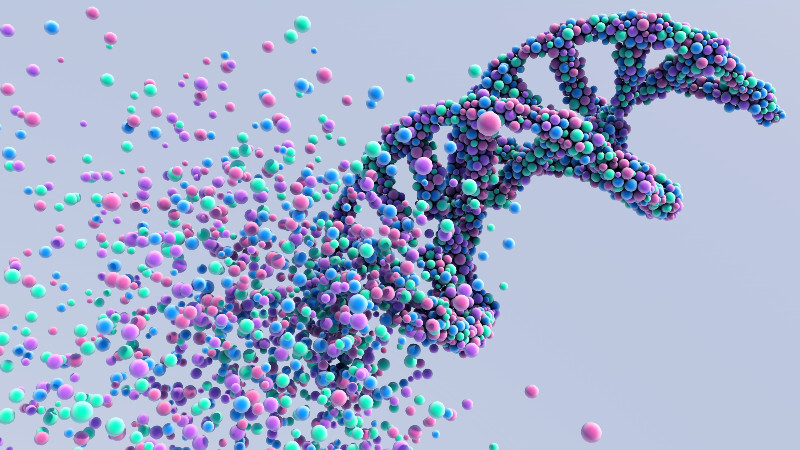DL-427 Executive Course on Intellectual Property and Genetic Resources in the Life Sciences
Learn how the use of intellectual property and genetic resources are growing and transforming rapidly in the field of modern life sciences.
Course Dates: September 15 to November 3, 2025

Eligibility
Applicants must have:
- Advanced English reading and writing abilities;
- Basic knowledge of IP related to genetic resources and the life sciences
How to Register
Only a limited number of seats will be available for participants in this session of the course.
Duration
This course requires approximately 15 hours of study time over a period of 4 weeks.
Course Description
This executive-level course serves as an introduction to strategic rights management in the commercialization of IP and genetic resources and data, and lays the foundation for advanced WIPO training and use of WIPO’s services on IP management for genetic resources and data in the life sciences.
Currently offered in English, the course will help executives of life science enterprises and innovators align their business and commercialization models with sound IP strategies. It also informs policymakers of latest trends and technologies that facilitate the evolution of modern IP-based life science innovation ecosystems.
What you will learn about
Key legal and policy IP frameworks and practical rights management issues for GR-based innovation in the life sciences.
Learning Method and Tools
Learner-centric methods that include individualized learning resource packages and customized goal setting for future project formulation. Expert tutors will provide academic support throughout the course.
The course will utilize state of the art WIPO eLearning tools, giving unparalleled virtual access to the expert tutors.
Who Should Apply
- Executives of stakeholders and enterprises in the field of IP and Genetic Resources (such as companies, universities, research institutions, gene banks, biobanks, culture collections);
- Policy makers in the field of IP and Genetic Resources;
- Innovators and researchers in the field of life sciences;
- Members of the public wishing to introduce themselves to the field of IP and Genetic Resources.
Learning Path
This executive-level course will require approximately 15 hours of study time over a period of 4 weeks. It consists of the following topics followed by a final exam:
- Module 1
- Module 2
- Module 3
- Module 4
- Module 5
Introduction to Intellectual Property and Genetic Resources in the Life Sciences 1 WEEK
Course Content:
- Definitions of GR
- History of use of GR in life sciences
- IP protection for GR-based innovation
- Regulatory frameworks on GR
- New GR technologies and emerging issues
Learning Outcomes:
Participants will be able to define key terms, trace the history of GR-use in life sciences and the evolution of IP-based protections
Branches of IP and policy relevant to the use of GRs in the Life Sciences 1 WEEK
Course Content:
- Patents
- Protection of Trade Secrets and undisclosed information
- Copyright and related rights
- Sui generis protection of databases
- Regulatory protection in market authorization and data exclusivity
- New technological protection measures
- Case studies on landmark patents involving GRs in the Life Sciences
Learning Outcomes:
Participants will be able to determine appropriate protection for GR-related subject matter under IP laws and relevant policies.
Emerging Issues in GRs Law and Policy and Related Technologies 1 WEEK
Course Content:
- Drafting other parts of a patent application
- Title, Background and Summary
- Description of inventions and drawings
- Abstract
- Preparations before drafting a patent application
Learning Outcomes:
Participants will be able to describe emerging legal and technological areas driving dynamic developments for IP and GRs in the contemporary life sciences.
Relevant Legal Instruments and International Policy Processes on IP and GR in the Life Sciences 1 WEEK
Course Content:
- Existing agreements, treaties, conventions, protocols and frameworks
- Ongoing negotiations
- Forums and processes
Learning Outcomes:
Participants will be able to describe international legal and policy frameworks for IP and GRs in the life sciences.
Practical IP issues on GRs in the Life Sciences 1 WEEK
Stream 1: Practical Issues for IP-GRs law and policy makers
- Case studies
- Assignment: Real-life policy project/ challenge
- Related WIPO Products and Services and Other Resources
- Customized Resources for Future Learning and IP-GR Support
Stream 2: Practical Issues for IP-GRs executives
- Case studies
- Assignment: Possible IP-GR Rights Management Projects
- Related WIPO Products and Services and Other Resources
- Customized Resources for Future Learning and IP-GR Support
Participants will be able to apply knowledge of IP and GRs from previous Modules in their daily work in the life sciences and enable deeper exploration of legal and policy issues.




